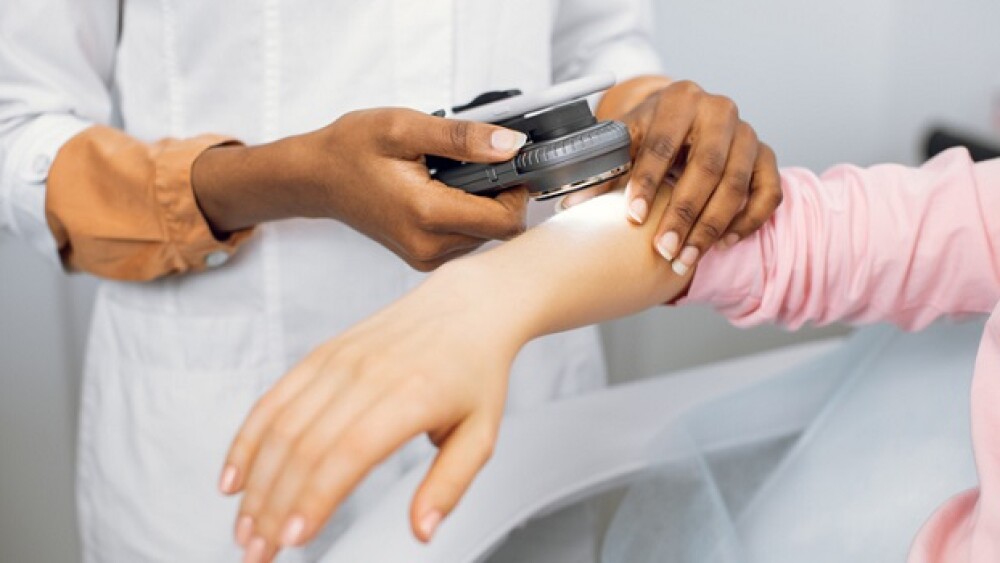UCB shared positive top-line results Friday from two Phase III studies of bimekizumab for adults with moderate to severe hidradenitis suppurativa.
Courtesy of Getty Images
A new treatment option may be on the horizon for individuals suffering from a chronic, debilitating skin disease. UCB shared positive top-line results Friday from two Phase III studies of bimekizumab for adults with moderate to severe hidradenitis suppurativa.
HS is not uncommon, with estimates ranging from 1-4 out of 100 adults afflicted across the U.S. and Europe. The condition involves flare-ups of painful nodules and abscesses occurring in the apocrine sweat glands, coiled secretory portions located at the junction of the dermis and subcutaneous fat.
There is no cure for HS as the exact cause of the condition is unknown.
Across the BE HEARD I and II studies, bimekizumab met both the primary endpoint of Hidradenitis Suppurativa Clinical Response (HiSCR50) and the secondary endpoint of HiSCR75 after 16 weeks of treatment. These pertain to either a 50 or 75% reduction from baseline in the total pus and inflammatory nodule count, with no increase from baseline in abscess or draining tunnel count.
Both were clinically meaningful improvements over the placebo, UCB reported. There were no new safety signals.
Detailed results and response rates will be shared at an upcoming meeting.
Results from the over 1,000 patients in the two studies are expected to form the basis of global regulatory applications which UCB stated will begin in Q3, 2023.
Bimekizumab is already approved to treat plaque psoriasis in the EU as Bimzelx.
A Place in the HS Market?
While clinicaltrials.gov shows 125 studies as active or completed for hidradenitis suppurativa, AbbVie’s blockbuster Humira is currently the only drug approved by the FDA for the condition. Humira works by blocking tumor necrosis factor alpha, which is thought to contribute to symptoms of HS.
Two pivotal studies of Humira vs. placebo done over a 12-week period achieved the primary endpoint of HiSCR50. Humira outperformed the placebo in both studies with 42% vs. 26% and 59% vs. 28% response rates.
While the results show Humira as a worthwhile option for many, it proved ineffective for a significant part of the population.
“What we hear from a lot of HS patients is that typically [the] efficacy [of Humira] starts to wane after about seven months,” Emmanuel Caeymaex, UCB’s EVP of immunology solutions and head of U.S. told BioSpace. “We’re expecting a lot of those patients to seek a different treatment that has more staying power.”
Caeymaex explained that the treatment rates for biologics for people with moderate-to-severe HS are not more than 10%. In autoimmune disease, typically biologics treatment rates go up to 50 - 60%.
“I think that with patient education many more people will step forward,” he said.
UCB’s asset is a monoclonal IgG1 antibody that inhibits both IL-17A and IL-17F in the body, two cytokines key to driving the inflammatory processes.
“We’re opening the door to understanding the inhibition of the 17F cytokine on top of the 17A cytokine. That 17F cytokine is very present in HS disease tissue,” Caeymaex said.
Novartis’ immunosuppressive agent Cosentyx also suppresses IL-17A and is already approved to treat a number of conditions including plaque psoriasis.
The company is gunning to add another indication to its label to treat HS. The Swiss pharmaceutical announced Phase III results in September, with plans for FDA submission before the end of the year.






